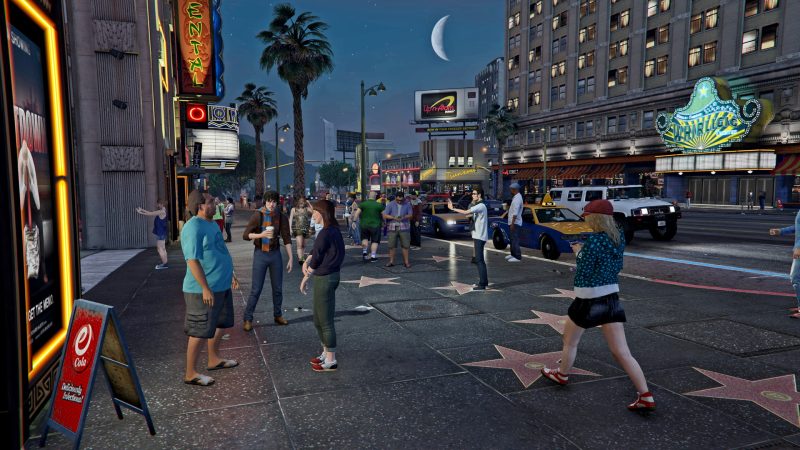In the vast, unending cityscape of Grand Theft Auto V, players often find unexpected nooks of creativity and innovation. Such was the case with Sentient Streets, a story-driven modification crafted by a modder known as Bloc. However, just as it was gaining traction and popularity among fans, it was abruptly halted by the heavy hand of Take-Two Interactive.
Sentient Streets was no ordinary mod. At its core, it revolved around characters whose dialogues were algorithmically generated through the Inworld Character Engine. As one played, one would encounter cult members, sly police officers, and unsuspecting civilians, each powered by over 30 AI models. By approaching these characters, players could initiate unique, open-ended conversations that flowed naturally, which is all thanks to the mod’s integration with the AI-based voice generation tools from ElevenLabs. But what truly made the mod stand out was its ability to weave narrative and gameplay in novel ways, making Los Santos feel more alive than ever.
For many fans and mod enthusiasts, Sentient Streets was an innovative masterpiece. So, it came as a shock when Bloc’s announcement hit the community: Take-Two Interactive, Rockstar’s parent company, had taken down the mod.

Bloc’s voice was laden with disappointment as they detailed the events. Not only had the mod been removed from Nexus Mods, but the showcasing video on YouTube, which had garnered over 100,000 views, was yanked down without notice. Even the mod’s installation guide, hosted on the cloud-computing platform Netlify, faced suspension. The trail of takedowns left Bloc and many others disoriented.
In the wake of the mod’s removal, some questioned. Why would Take-Two target a mod that neither redistributed GTA V assets nor monetized its content, which are copyrighted by Rockstar? One possibility is the mod’s collaboration with Inworld AI and its use of the voice library from ElevenLabs, a company valued at $100 million, renowned for creating AI-generated voices.
Could it be that the intricate meshing of AI tools and GTA’s universe raised unforeseen legal and ethical concerns for a company as cautious as Take-Two?

But as Bloc pointed out, their approach to modding was anything but commercial. Sentient Streets was an open-source program, available for free, and purposefully avoided using any copyrighted material from GTA V. Even potential links to Patreon were omitted to sidestep controversies. The disheartening part for Bloc and the community was the lack of communication from Take-Two. There were no warnings, no discussions – just takedowns.
The situation became more ironic when one considered Rockstar Games’ recent acquisition of the Cfx.re group, which is a well-known creative entity. This acquisition was seen by many as an acknowledgment of the modding community and its significance. Yet, while Rockstar seemingly embraced the modding world, its parent company continued its pursuit against fan projects.
Bloc’s sentiment echoed that of many individual creators finding themselves pitted against corporate giants, saying:
Knowing that large corporations can issue strikes based on arbitrary reasons, which can cause your work to go in vain in moments, is discouraging to say the least.
As days turned into weeks, the silence from Take-Two became deafening. Their non-communicative stance contrasted starkly with the vibrant dialogues of Sentient Streets.
The larger question remains: where does the line get drawn between fan creativity and corporate interests? And while the Sentient Streets may have been silenced, its legacy persists, reminding all of the power of innovation, the challenges of creativity, and the need for open dialogues between creators and corporations.

In an ever-evolving digital landscape, the tale of Sentient Streets serves as a poignant reminder of the battles individual creators face. The Grand Theft Auto series, known for its depictions of underdogs battling the system, finds itself at the heart of a real-life story, where the roles are reversed, and the underdogs seek only to create.

